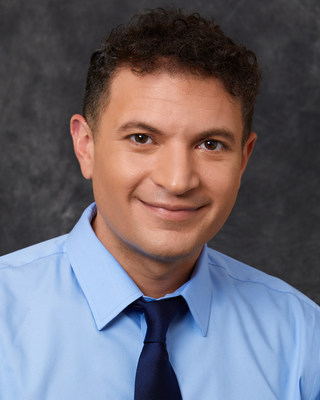Innovative new NfL tests may help predict disease course in neurological conditions
Innovative new NfL tests may help predict disease course in neurological conditions
OWOSSO, Mich., Sept. 10, 2019 /PRNewswire/ -- The Memorial Healthcare Institute for Neurosciences and Multiple Sclerosis, and its Chief of Neurology, Rany Aburashed, D.O., are the first in the U.S. to use Neurofilament Light Chain testing prospectively for patients with multiple sclerosis. The study, aimed at 1,000 patients will use the technology to investigate biomarkers and predictors of MS and eventually, how these may be used to predict the progression of the disease and the effectiveness of treatments.

"NfL has the potential to dramatically increase our ability to assess disease activity and change in real time. Previous testing of NfL was limited to spinal fluid only, which remains impractical in the clinical setting. We are optimistic that this testing can hopefully help us determine the degree of underlying structural damage occurring from a condition. In turn, we hope we can also assess whether our treatments are effectively working using NfL," said Dr. Aburashed.
The impact of NfL for patients with Multiple Sclerosis
Neurofilament light chain is a polypeptide that provides the structural framework and support to nerve cells. During an injury to a nerve cell in the brain or spinal cord, levels of this structural protein are leaked into the spinal fluid and eventually to the blood. Recent technology advancements have led to the development of a specialized machine that allows researchers to measure the degree of NfL in a person's blood with high sensitivity and reproducibility. The technology, known as SIMOA and costing about $150,000, is named for its use of single molecule array assays to evaluate a patient's blood for presence of the proteins.
NfL testing has been utilized for patients with a variety of neurological conditions, such as Alzheimer's and dementia, to help target therapy to a patient's individual needs. As the first U.S. hospital to actively research NfL testing in real world patients with multiple sclerosis, Memorial Healthcare is paving the way for future treatment of MS.
"A patient's presentation, degree of disability and symptoms all make up a unique fingerprint to their disease," said Dr. Aburashed. "Given these differences, there is currently no standardized algorithm for treating MS. However, we are cautiously optimistic to learn the potential value of measuring NfL and, in turn, hopefully be able to provide more accurate treatment regimens on an individual level and much earlier in the disease course."
Innovation in medical care
A shared belief in innovation among executives and physicians at Memorial is leading the health system's vision to build a comprehensive neurology program that can treat neuro specialties on a broad, national level. Since 2015, the neurology program has grown from one neurologist to a team of nine by the Fall.
"My primary goal here at Memorial is to create an environment that is conducive and attractive for health care providers to practice their trade at the highest level, and an environment where openness and collaboration exists," said Brian Long, FACHE, president and CEO of Memorial Healthcare.
In addition to its investment in the NfL technology, Memorial Healthcare is investing nearly $30 million in a new facility that will specialize in neurology and orthopedics and will also house a health and wellness center for the community.
"We are creating both a physical structure and environment that is conducive to specialized care. It's all about providing the highest level of care," said Long.
Memorial Healthcare's neurological physicians specialize and focus on a variety of diseases. Emphasis has been placed on Neuro-immunological disorders such as MS in addition to Muscular dystrophies, Dementia, Neuro-vestibular disorders, Neuro-ophthalmologic disease, headache/facial pain and stroke.
"As a group, our shared belief is that the final frontier and next wave of medical breakthroughs will continue to center on neurologic conditions," said Dr. Aburashed. "Our goal and primary focus remains entirely on helping the individual patient in front of us, while providing the best possible collaborative framework to achieve our full potential both as care providers and as a team."
For more information about Memorial Healthcare, its Institute for Neurosciences and Multiple Sclerosis or the neurofilament light chain (NfL) research study, visit memorialhealthcare.org/service/neurology or call 989-723-1390.
About Memorial Healthcare
Memorial Healthcare is a 161-bed non-profit facility located in Shiawassee County, Michigan. Each year, Memorial cares for nearly 30,000 emergency patients, provides more than 200,000 outpatient service visits and delivers hospital-based medical services to more than 3,500 inpatients. Our mission is to promote health and wellness through quality, compassionate health care with a commitment to service excellence, teamwork and innovation. For more information visit https://www.memorialhealthcare.org.
![]() View original content to download multimedia:http://www.prnewswire.com/news-releases/michigan-based-memorial-healthcare-first-in-us-to-use-new-neurofilament-light-chain-technology-for-multiple-sclerosis-patients-300914523.html
View original content to download multimedia:http://www.prnewswire.com/news-releases/michigan-based-memorial-healthcare-first-in-us-to-use-new-neurofilament-light-chain-technology-for-multiple-sclerosis-patients-300914523.html
SOURCE Memorial Healthcare




